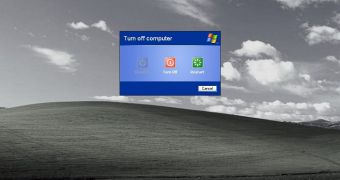The Windows XP retirement saga continues with another statement, this time contradicting some of the figures released by Microsoft itself a few days ago.
A Microsoft Australia executive said that the local market was quickly abandoning Windows XP, so the majority of computers in the country has already made the switch to newer OS versions, such as Windows 7 and Windows 8.
And still, one security expert says that’s not the case, as tens of thousands of computers are still powered by Windows XP in Australia, which means that Microsoft must continue its efforts to show users the risks of staying with this old platform and refusing to upgrade.
“Across Australia there are tens of thousands of machines still running Windows XP – just think POS terminals, let alone all those SMBs,” Gordon Maddern, CTO, Pure Hacking, was quoted as saying by TechDay.
“Anyone still on XP is will be wide open to attack. All new vulnerabilities – and countless numbers of these are likely – will no longer be fixed by Microsoft. I cannot stress enough, it’s time to migrate, migrate, migrate,” he added in a pure Steve Ballmer-inspired style.
Time is running out for Windows XP users willing to upgrade, as end of support will be reached in approximately 10 days. After April 8, Microsoft will no longer launch patches and security updates, so all computers running it could become vulnerable to attacks in a second if hackers discover unpatched vulnerabilities.
Nonetheless, Microsoft will continue to provide extended Windows XP support to paying customers who are trying to keep computers protected until they complete the migration to a newer platform.
The problem is that Windows XP users who don’t have the money to purchase extended support and cannot afford a new computer with Windows 8.1 would basically be vulnerable to attacks once Microsoft pulls the plug on the operating system.
Security vendors have indeed announced that support for Windows XP would continue through 2015 or 2016, but the unpatched flaws in the operating system itself could still wreak havoc without Microsoft’s help. Still, consumers should replace Office 2003 and Internet Explorer with alternative software that’s still protected and receives updates, such as LibreOffice and Google Chrome.
Security apps will still get updates, so anti-virus products and firewalls working on Windows XP will remain up for grabs for at least a couple more years after the operating system is officially retired.

 14 DAY TRIAL //
14 DAY TRIAL //